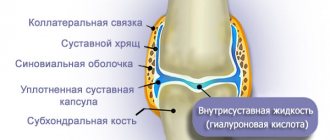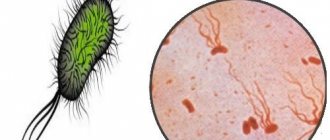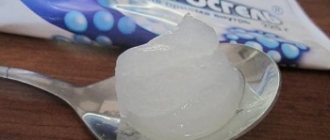Intestinal antibiotics are a reliable remedy for various diseases caused by the vigorous activity of protozoa, enteroviruses and microbes. These medications are necessary in cases where the body is not able to cope with the pathogen on its own and requires active outside help for complete recovery. They allow you to successfully fight intestinal infections of various origins, stop the inflammatory process and further reproduction of the virus.
Antiseptics for dysbacteriosis
These drugs include intestinal antiseptics, which are quite effective in treating dysbiosis. Antiseptics are not among the drugs that restore the microflora and intestinal mucosa; their action is aimed at reducing the proliferation of harmful bacteria, which leads to a reduction in the symptoms of dysbacteriosis and a quick cure.
Intestinal antiseptics for dysbacteriosis
There are several types of antiseptics with which you can achieve different results. It is worth remembering that these drugs are only auxiliary; for intestinal infections, the doctor may prescribe antibacterial drugs, as well as pribiotics and probiotics.
Enterofuril for dysbacteriosis
Enterofuril belongs to the nitrofurans, the action of which is aimed at eliminating infectious and inflammatory diseases. Nitrofurans have a high risk of side effects, but despite this, Enterofuril does not have such disadvantages, since the drug begins to act immediately after entering the intestines, but is absorbed into the blood.
Indications for use
The drug is prescribed when the following factors cause diarrhea:
- acute diarrhea caused by pathogenic microbes;
- chronic course of the disease;
- colitis;
- diarrhea caused by taking other medications;
- acute or chronic diarrhea of unknown origin.
Enterofuril has bacterial activity against staphylococcus, salmonella, streptococcus, Escherichia coli, cholera and gastric ulcers.
Immediately after taking the drug, the following therapeutic actions occur:
- blocking the toxic effects of pathogenic microbes;
- increasing immunity;
- antidiarrheal effect;
- bactericidal and bacteriostatic effect;
- prevention of recurrent infections.
Enterofuril does not have a negative effect on beneficial bacteria, thereby not suppressing the beneficial composition of the intestinal microflora.
Mode of application
The drug is available in the form of capsules and suspensions, with varying amounts of active substance. Enterofuril is prescribed according to the following regimens:
- For children over 7 years old, as well as for adults – 1 capsule 4 times a day at the same time.
- For children over 7 years old and adults – a single dose of 4 capsules.
- Taking the suspension for children over 7 years old and adults – 200 ml 4 times a day or 800 ml once.
Directions for use of the drug for children under 7 years of age:
- From 1 to 6 months – 100 ml up to 3 times a day or once.
- From 7 months to 2 years – 100 ml up to 4 times a day or once.
- From 2 to 7 years – 600 ml once a day.
The duration and method of administration depends on the severity of the disease and the individual characteristics of the patient.
Contraindications and side effects
Like any drug, Enterofuril has the following contraindications:
In most cases, this drug does not cause side effects. In some cases, an allergic reaction may occur due to high sensitivity to the active component. If any manifestations occur, you must stop taking Enterofuril and consult a doctor.
Ersefuril for dysbacteriosis
Ersefuril is an intestinal antiseptic that has an antidiarrheal effect and is used to treat infectious diseases. The drug begins its action immediately after use without being absorbed into the blood, which reduces the risk of side effects.
Immediately after administration, the destruction of pathogenic cells and the strengthening of the immune system begins to occur. The course of treatment is no more than 14 days, depending on the severity of the infectious intestinal disease.
The main indication for use is diarrhea caused by various types of bacteria, in the absence of complications.
Features of application
In the absence of complications, the drug is recommended to be used according to the following scheme:
- For children over 6 years old – 3 capsules several times a day.
- For adults – 4 capsules 4 times a day.
The duration of treatment is no more than 7 days; in some cases, the doctor may extend the treatment for several days.
Contraindications and side effects
Ersefuril has the following contraindications:
- children under 6 years old;
- During pregnancy and breastfeeding;
- hypersensitivity to components;
- acquired or congenital deficiency of sucrase and isomaltase;
- impaired absorption of galactose and glucose.
The drug is easily tolerated by patients; in rare cases, an allergic reaction may occur, manifested in the form of a rash, anaphylactic shock and Quincke's edema. At the onset of such manifestations, you should immediately stop taking the medication.
Loperamide for dysbacteriosis
Unlike Enterofuril, this drug has side effects that manifest themselves in the form of various allergic reactions, sleep disturbances, dizziness and drowsiness. Therefore, Loperamide must be taken strictly according to the instructions prescribed by your doctor individually. The dosage and course of administration depend on the course of the disease, the effect occurs as soon as possible and lasts up to 6 hours.
Nifuroxazide for dysbacteriosis
Indications for use of the drug:
- colitis;
- intestinal dysbiosis;
- diarrhea caused by infection;
- food poisoning.
- prevention of infection during operations, for example, for appendicitis.
It has a negative effect on pathogenic microbes, not giving them a chance to reproduce. The medicine can be used by adults and children from 2 months.
- Adults and children over 6 years old – 2 tablets 4 times a day.
- Children from 2 to 6 months - the drug is given in the form of a suspension of ½ tsp. 2 times a day.
- For children from 6 months to 6 years – 1 tsp. Suspensions up to 3 times a day.
Recovery after taking antibiotics
Additional measures to restore health after taking antibiotics are needed if:
- several antibiotic drugs were used simultaneously;
- the reception lasted over 10 days;
- the patient is sick with immunodeficiency syndrome, chronic diseases, oncology;
- the patient is exhausted;
- medications were used independently, without consulting a doctor.
For the speedy restoration of intestinal microflora, it is appropriate to use biological products, fermented milk products enriched with beneficial bacteria - bifidoyogurt, biokefir and their analogues. It is recommended to include in the diet:
- oatmeal;
- onion;
- artichokes;
- bananas;
- dill;
- parsley;
- dried apricots;
- white cabbage.
To eliminate drug residues, it is useful to undergo a course of cleansing with enterosorbents or medicinal herbs. But restorative therapy should also be agreed upon with the attending physician.
Antiseptics for dysbacteriosis
These drugs include intestinal antiseptics, which are quite effective in treating dysbiosis. Antiseptics are not among the drugs that restore the microflora and intestinal mucosa; their action is aimed at reducing the proliferation of harmful bacteria, which leads to a reduction in the symptoms of dysbacteriosis and a quick cure.
Intestinal antiseptics for dysbacteriosis
There are several types of antiseptics with which you can achieve different results. It is worth remembering that these drugs are only auxiliary; for intestinal infections, the doctor may prescribe antibacterial drugs, as well as pribiotics and probiotics.
Enterofuril for dysbacteriosis
Enterofuril belongs to the nitrofurans, the action of which is aimed at eliminating infectious and inflammatory diseases. Nitrofurans have a high risk of side effects, but despite this, Enterofuril does not have such disadvantages, since the drug begins to act immediately after entering the intestines, but is absorbed into the blood.
Indications for use
The drug is prescribed when the following factors cause diarrhea:
- acute diarrhea caused by pathogenic microbes;
- chronic course of the disease;
- colitis;
- diarrhea caused by taking other medications;
- acute or chronic diarrhea of unknown origin.
Enterofuril has bacterial activity against staphylococcus, salmonella, streptococcus, Escherichia coli, cholera and gastric ulcers.
Immediately after taking the drug, the following therapeutic actions occur:
- blocking the toxic effects of pathogenic microbes;
- increasing immunity;
- antidiarrheal effect;
- bactericidal and bacteriostatic effect;
- prevention of recurrent infections.
Enterofuril does not have a negative effect on beneficial bacteria, thereby not suppressing the beneficial composition of the intestinal microflora.
Mode of application
The drug is available in the form of capsules and suspensions, with varying amounts of active substance. Enterofuril is prescribed according to the following regimens:
- For children over 7 years old, as well as for adults – 1 capsule 4 times a day at the same time.
- For children over 7 years old and adults – a single dose of 4 capsules.
- Taking the suspension for children over 7 years old and adults – 200 ml 4 times a day or 800 ml once.
Directions for use of the drug for children under 7 years of age:
- From 1 to 6 months – 100 ml up to 3 times a day or once.
- From 7 months to 2 years – 100 ml up to 4 times a day or once.
- From 2 to 7 years – 600 ml once a day.
The duration and method of administration depends on the severity of the disease and the individual characteristics of the patient.
Contraindications and side effects
Like any drug, Enterofuril has the following contraindications:
In most cases, this drug does not cause side effects. In some cases, an allergic reaction may occur due to high sensitivity to the active component. If any manifestations occur, you must stop taking Enterofuril and consult a doctor.
Ersefuril for dysbacteriosis
Ersefuril is an intestinal antiseptic that has an antidiarrheal effect and is used to treat infectious diseases. The drug begins its action immediately after use without being absorbed into the blood, which reduces the risk of side effects.
Immediately after administration, the destruction of pathogenic cells and the strengthening of the immune system begins to occur. The course of treatment is no more than 14 days, depending on the severity of the infectious intestinal disease.
The main indication for use is diarrhea caused by various types of bacteria, in the absence of complications.
Features of application
In the absence of complications, the drug is recommended to be used according to the following scheme:
- For children over 6 years old – 3 capsules several times a day.
- For adults – 4 capsules 4 times a day.
The duration of treatment is no more than 7 days; in some cases, the doctor may extend the treatment for several days.
Contraindications and side effects
Ersefuril has the following contraindications:
- children under 6 years old;
- During pregnancy and breastfeeding;
- hypersensitivity to components;
- acquired or congenital deficiency of sucrase and isomaltase;
- impaired absorption of galactose and glucose.
The drug is easily tolerated by patients; in rare cases, an allergic reaction may occur, manifested in the form of a rash, anaphylactic shock and Quincke's edema. At the onset of such manifestations, you should immediately stop taking the medication.
Loperamide for dysbacteriosis
Unlike Enterofuril, this drug has side effects that manifest themselves in the form of various allergic reactions, sleep disturbances, dizziness and drowsiness. Therefore, Loperamide must be taken strictly according to the instructions prescribed by your doctor individually. The dosage and course of administration depend on the course of the disease, the effect occurs as soon as possible and lasts up to 6 hours.
Nifuroxazide for dysbacteriosis
Indications for use of the drug:
- colitis;
- intestinal dysbiosis;
- diarrhea caused by infection;
- food poisoning.
- prevention of infection during operations, for example, for appendicitis.
It has a negative effect on pathogenic microbes, not giving them a chance to reproduce. The medicine can be used by adults and children from 2 months.
- Adults and children over 6 years old – 2 tablets 4 times a day.
- Children from 2 to 6 months - the drug is given in the form of a suspension of ½ tsp. 2 times a day.
- For children from 6 months to 6 years – 1 tsp. Suspensions up to 3 times a day.
Effect on intestinal flora
When taken, antibiotics negatively affect the composition of the intestinal flora. The following symptoms appear: stomach pain, loss of appetite, nausea. By acting on pathogenic organisms, the antibiotic harms beneficial bacteria. The doctor prescribes probiotics to protect the intestines. Taking an antibiotic produces an immediate antibacterial effect and relieves pain. Along with antibiotics, you need to take probiotics to restore beneficial bacteria and protect the intestinal microflora: “Bifistim”, “Probifor”. Take probiotics 3 capsules per day.
Use of enterofuril for poisoning
Enterofuril #8212; This is a new generation intestinal antiseptic. It has a wide spectrum of action. It contains the active component nifuroxazide, which has a bacteriostatic effect on pathogenic microorganisms.
Use of the drug in case of poisoning
The main sources of poisoning are considered to be pathogenic microorganisms, bacteria and protozoa. They can enter the human body through the oral or fecal route. Infection occurs in everyday life through low-quality spoiled food or raw water. The maximum peak of poisoning occurs in the summer. The main causes of intoxication in winter are various viruses.
Description of the drug and its effect
"Enterofuril" fully meets certain requirements:
- It's effective. Easily eliminates pathogenic microorganisms that cause poisoning;
- It is one of the safest among antimicrobial drugs;
- Can be easily dosed;
- Has a pleasant taste;
The drug is very safe. It does not cause dysbacteriosis. The main reason is considered to be the composition of the drug. The chemical formula of the drug is absolutely safe for beneficial intestinal microorganisms. The drug has a selective effect. It is able to eliminate or suppress pathogenic microorganisms, while leaving beneficial ones intact.
Prevention of gastrointestinal inflammation
Is it possible to prevent inflammatory diseases of the gastrointestinal tract? In most cases, this is quite possible, because the causes of illness are poor diet, bacterial infections, alcohol and medication abuse. In addition, the likelihood of inflammation is affected by stress, diabetes, lack of vitamins and microelements in the body, chronic diseases of other internal organs - gastritis, cholecystitis. Consequently, close attention to your health and lifestyle will help you avoid such unpleasant diseases as enteritis and colitis.
Types of intestinal antiseptics
The so-called intestinal antiseptics are a sub-category of the classification of sulfonamides and nitrofurans.
Sulfonamides are a group of drugs that were synthesized in the middle of the last century, that is, they have been used for a long time and enjoy deserved popularity. It has bactericidal or bacteriostatic activity (depending on concentration) against gram-positive and gram-negative microorganisms.
All sulfonamides are divided according to the rate of elimination from the human body and the ability to be absorbed into the gastrointestinal tract:
- well absorbed in the digestive canal (short, medium and long action);
- local action (sodium sulfacyl, streptocide);
- poorly absorbed in the digestive canal.
The last point is called intestinal antiseptics. These drugs exhibit high antimicrobial activity, but act only in the intestinal cavity, poorly penetrating into the systemic bloodstream and through natural tissue barriers, for which they received such a unique name.
There is currently no unified classification of nitrofurans; its individual representatives are usually called furazolidone and nifuroxazide.
The direction of action of drugs and a review of the most effective drugs
Only the use of a complete medicinal complex will help to quickly cope with colitis and the complications that it causes.
Each type of drug solves individual problems:
- Anti-inflammatory medications are aimed at relieving inflammation that causes bloating and discomfort.
- Antibiotics and corticosteroids and anti-allergy medications are responsible for eliminating infections, pathogenic bacteria and allergies. They perform the most important function in the treatment of colitis - eliminating the original source of the disease.
- Analgesics help manage pain
- Diarrhea medications eliminate the side effects of nausea and loose stools.
- Sedatives help normalize the nervous system, which is in an irritated state due to intestinal problems.
- Vitamins restore the level of nutrients in the body that are washed away by diarrhea, and probiotics normalize the intestinal microflora with the help of beneficial bacteria.
Used for acute intestinal disorders: ulcerative and intestinal colitis, pancreatitis. The active ingredient - pancreatin - helps the absorption of nutrients and saturates with bile, which normalizes the general condition of the intestines. Used for gastric resection. Combines well with antibiotics, vitamins and analgesics. Prescribed by a doctor when the main symptom is diarrhea.
Panzinorm is an enzyme preparation. They are usually prescribed for enzyme deficiency due to dysbacteriosis. In the case of colitis, dysbiosis will accompany the disease, so it is necessary to take it. Helps cope with constipation.
The medicine is especially good for chronic colitis, since its main function is to quickly relieve the spasm that accompanies chronic colitis. It is precisely because a spasm can appear at any time that the medicine is used everywhere.
Sulfasalazine
The active substance - sulfaperidine - accumulates in the connective tissue of the intestines, which allows you to get rid of streptococci, gonococci, E. coli and other bacteria that can cause colitis. In addition, it has anti-inflammatory activity.
Bellasthesin
The benzocaine and belladonna extract included in the composition help eliminate spasms and reduce the level of acidity, which provokes intestinal inflammation.
Bifidumbacterin
The bifidobacteria included in the composition eliminate diarrhea and nausea and normalize the intestinal microflora.
List of drugs
The most commonly prescribed drugs are:
- phthalazole;
- furazolidone;
- nifuroxazide (enterofuril, ersefuril);
- phthazine;
- sulgin.
Each of the drugs is characterized by advantages and disadvantages. Only a doctor (infectious disease specialist or family doctor) can assess the intended benefits and possible harm.
Phthalazole
It disrupts the metabolism of folic acid in the microbial cell, which makes further formation of new microbial particles impossible. In this way, its antimicrobial activity is realized against many bacteria and some large viruses. High concentration inside the intestinal lumen allows you to quickly achieve the desired effect. To maintain it, you need to take the drug 4 times a day at regular intervals.
Phthalazole also has anti-inflammatory activity, as it inhibits the migration of leukocytes to the site of inflammation. The combined action ensures rapid recovery of the patient.
Phthalazole is available in the form of medium-sized white tablets. This dosage form is affordable for patients of any income level. The average price for 10 tablets does not exceed 15-25 rubles.
Phtazin
In many ways similar to phthalazole. Has a longer duration of action. When used systematically, it is found in sufficient concentrations in the blood, which can be important in the treatment of severe bacterial intestinal infections.
Furazolidone
It disrupts tissue respiration processes, which destroys the microbial cell. It is an MAO inhibitor, so it is important to correctly assess the possibility of potential drug interactions.
Furazolidone is active not only against gram-positive and gram-negative bacteria, but also against protozoal pathogens (giardia, trichomonas). To create a stable concentration in the blood, it is necessary to take furazolidone quite often - 4 times a day, the dosage is selected in accordance with the age and weight of the patient.
Available in the form of small yellow tablets. The small size of the tablets makes it possible to use furazolidone in pediatric practice. The cost of a course of treatment with furazolidone is 150-200 rubles.
Nifuroxazide
The most modern active ingredient in the group of so-called intestinal antiseptics. It has a multicomponent effect: it disrupts tissue respiration and metabolic processes inside the microbial cell, reduces the production of endotoxins produced by pathogens of intestinal infections, restores normal biocenosis inside the intestine, stimulates local immunity, and when infected with intestinal viruses, prevents the possible development of association with pathogenic bacteria.
Available in the form of tablets, capsules or syrup. Such a variety of dosage forms allows you to choose the most convenient form of therapy for the patient. Unlike other intestinal antiseptics, it can be used not 4, but only 3 times a day.
Symptomatic therapy
Along with etiotropic treatment, patients are prescribed drugs to reduce the severity of clinical manifestations. Most often, adults and children complain of stomach pain, regardless of the presence of food there. Previously, gastroenterologists practiced the use of No-shpa or its imported analogue. But these drugs relax the smooth muscle muscles of all internal organs, which is not always desirable. Selective antispasmodics are most effective in treating inflammation of the small and large intestines:
If the pathology occurs against the background of excessive gas formation, then the patient is recommended to take antifoaming agents, for example, Espumisan in syrup or enteric capsules. And with hypersecretion of gastric juice and pepsin, one cannot do without the use of proton pump inhibitors: Omeprazole, Pantoprazole, Esomeprazole.
Only highly specialized doctors—gastroenterologists—know how to treat intestinal inflammation. If diarrhea, constipation, heartburn and bloating persist for a long time, you should seek qualified medical help. The earlier treatment begins, the fewer serious complications there will be.
Constant abdominal pain, diarrhea or constipation - these symptoms are familiar to many people. Of course, they don’t always go to the doctor with them, believing that the reason is a banal digestive disorder. However, these signs can often indicate a much more serious illness. This is inflammation of the intestines. The symptoms and treatment of this disease are described in this article.
How is a specific drug selected?
The above drugs can be prescribed only in case of a preliminary diagnosis of an infectious process. The patient cannot independently determine the origin of the disease, since the clinical symptoms of intestinal infections, ulcerative colitis, and surgical pathology of the gastrointestinal tract are largely similar. Uncontrolled use of intestinal antiseptics may cause side effects and not improve the patient's condition.
In modern practice, it is allowed to prescribe intestinal antiseptics until the results of a bacteriological examination of feces are obtained. The wide spectrum of effects of nitrofurans and sulfonamides, the low level of resistance of microorganisms to these drugs allows you to quickly cure a patient from a bacterial infection and some protozoal invasions.
Almost every person experiences indigestion from time to time. Such a nuisance can be provoked by various factors, and in most cases it goes away quite easily on its own, or with the use of enzyme agents, astringents and sorbents. However, in certain cases, diarrhea requires more serious treatment, for example, with fever and clinical signs of a number of intestinal infections. In this case, the drugs of choice often become various intestinal antiseptics, the new generation of drugs of which we will consider at www.rasteniya-lecarstvennie.ru in a little more detail.
It is imperative to remember that intestinal antiseptics can be selected exclusively by a doctor, who must be guided by the results of bacteriological analysis that determine the sensitivity of the isolated microflora to the effects of antibiotics. In some cases, the therapy may be selected after analyzing the clinical picture observed in the patient.
Modern intestinal antiseptics can be monocomponent or combined. The first include Ersefuril, and the second: Dependal-M, Intetrix, Sumetrolim, and Enterosediv.
This medicine is produced in the UK; it is a combination chemotherapeutic agent that is used to treat intestinal infections of bacterial, protozoal and mixed nature. This medication is based on the well-known antibiotics Furazolidone and Metronidazole. The first of them actively copes with many pathogens, including E. coli, staphylococcus, salmonella, shigella, proteus, etc. This remedy can also be used to eliminate giardia. Its distinctive property is its inability to greatly disrupt the microflora of the gastrointestinal tract.
Metronidazole, in turn, is a synthetic antibacterial agent that can destroy anaerobic gram-negative bacteria. Dependal-M suspension is also a source of pectin and kaolin, which have nonspecific antidiarrheal properties. The medicine can be purchased in the form of tablets or suspension.
This intestinal antiseptic effectively eliminates not only bacteria, but also Candida fungi. Therefore, it quite often becomes the drug of choice for various disorders of the gastrointestinal tract that require such therapy. Intetrix copes well with most pathogenic intestinal bacteria, as well as amoebas.
In addition, it is not capable of causing bacterial resistance or dysbacteriosis. This medicine rarely causes side effects, and can be taken for a long time - no more than a month. This medication is indicated for people traveling to tropical countries and areas with insufficiently favorable epidemiological conditions; in this case, it is used for prevention. The medicine is available in capsule form.
This medicine is a combined antimicrobial agent. When taken orally, Sumetrolim is quickly and quite effectively absorbed into the blood (90%). It is not prescribed to children under six weeks of age, pregnant women, as well as people with kidney or liver failure or blood picture disorders. Of course, individual intolerance is also considered a contraindication.
In early childhood, Sumetrolim can be used only in exceptional cases. In certain cases, it is used in a minimal dosage, while observing the blood picture. It is worth considering that treatment with this remedy requires taking a sufficient amount of liquid. You can buy it in the form of tablets or syrup for children.
This medicine has antimicrobial and antiparasitic properties. It contains antibiotics that are not absorbed into the gastrointestinal tract (dihydrostreptomycin, as well as bacitracin). In addition, this product contains sulfonamide sulgin and the hydroxyquinoline component diiodoquine. It also contains adsorbents represented by pectin and kaolin, as well as vitamin K and pantothenic acid (the last two components can stimulate the healing of mucous membranes). Thanks to this composition, Enterosediv often becomes the drug of choice in the treatment of intestinal infections. You can buy it in tablet form.
This intestinal antiseptic is a representative of the nitrofuran group. Its use in a therapeutic dosage has a bacteriostatic effect, and in higher doses it has a bactericidal effect. This medicine is active against gram-positive cocci, as well as against gram-negative microorganisms - salmonella, shigella, proteus. Ersefuril is practically unable to be absorbed in the intestine and has a local effect. It can be purchased in capsule or suspension form.
It is worth considering that any of the listed drugs is an antibiotic in nature. Accordingly, if consumed insufficiently, such drugs can aggravate intestinal dysfunction. Therefore, doctors use them extremely rarely, only when absolutely necessary. Preference is given to medications that can stimulate the restoration of normal gastrointestinal microflora. The duration of taking intestinal antiseptics and dosage are selected only by the doctor.
Ekaterina, written for www.rasteniya-lecarstvennie.ru Google
— Dear our readers! Please highlight the typo you found and press Ctrl+Enter. Write to us what is wrong there. — Please leave your comment below! We ask you! We need to know your opinion! Thank you! Thank you!
Diagnosis of inflammation
For treatment to be successful, the cause of the disease must first be established. When diagnosing, it is necessary not only to determine its type and etiology, but also to separate the inflammatory process in the intestines from other ailments of the gastrointestinal tract, for example, tumors, cholecystitis and pancreatitis, biliary dyskinesia, irritable bowel syndrome. In women, purely female ailments, such as adnexitis, are often disguised as inflammatory processes in the intestines.
When making a diagnosis, the doctor first of all asks the patient about his symptoms and palpates the lower abdomen. To diagnose the lower intestine, methods such as colonoscopy (endoscopic examination of the entire colon) or sigmoidoscopy (endoscopic examination of the rectum and sigmoid colon) are used. Endoscopic methods can also be used to examine the inner surface of the upper intestine. For example, the fibroesophagogastroduodenoscopy method, in which a special probe is inserted through the mouth, is used to examine the stomach and duodenum.
Extremely useful in many cases is a coprogram - a method that allows one to determine by the structure of feces the department in which the pathological process develops. A bacteriological analysis of stool is also used, which makes it possible to determine the structure of the microflora of the colon.
A blood test is also very helpful in making a diagnosis. A high level of leukocytes and ESR in the blood usually indicates the presence of an inflammatory process.
Features of treatment of acute intestinal infections
ACI, especially in children (they develop severe dehydration very quickly), should be treated in an infectious diseases department.
The basis of treatment is the fight against dehydration, intoxication and electrolyte imbalance. The purpose of sorbents plays an important role. Due to adsorption, absorption and elimination of the causative agent of acute intestinal infection, they not only contribute to effective detoxification, but also partially have an etiotropic effect.
Etiotropic (pathogenetic antibacterial therapy) should be prescribed strictly according to indications, on the recommendation of the attending physician, since antibiotics can increase the manifestation of endotoxemia (due to the death of a large number of pathogens and the rapid absorption of toxins into the blood). Also, dysbiosis that occurs during antibacterial therapy can aggravate functional disorders of the gastrointestinal tract.
In this regard, antibiotics for AEI should be prescribed strictly according to the indications listed above. Self-medication of ACI and independent choice of antibiotics are fraught with complications and aggravation of the severity of the disease.
https://youtu.be/dJp6ffXeMKM
Foodborne illnesses
This term refers to a group of acute infectious diseases caused by toxins of opportunistic microorganisms accumulated in food products. Due to the fact that poisoning is caused not by the bacteria themselves, but by their toxins, antibacterial therapy is not carried out for uncomplicated foodborne infections.
Read further: Antibiotics for food poisoning in adults and children











